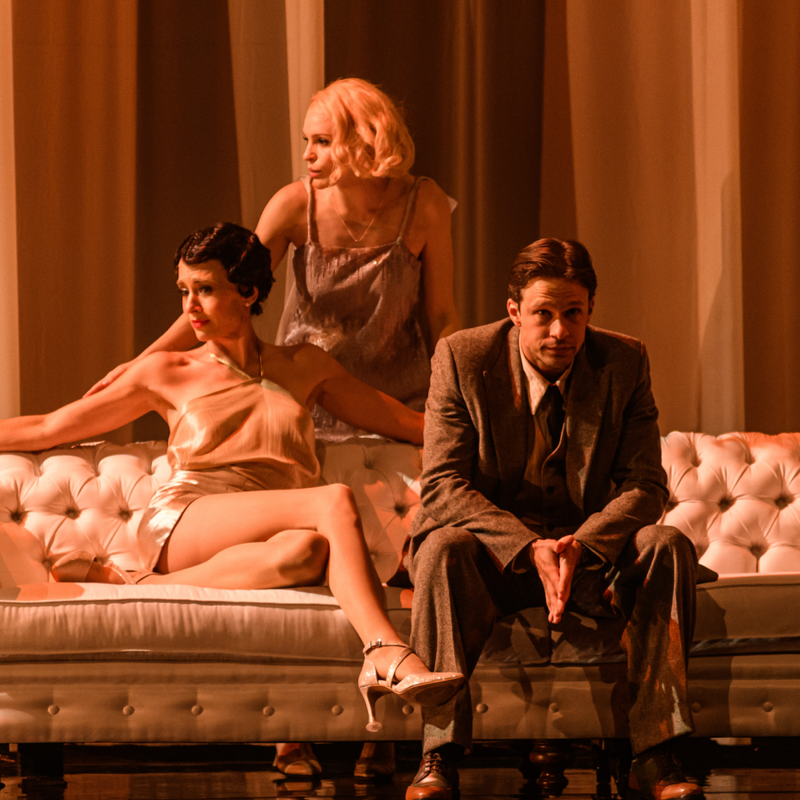The early-20th Century struggle for women’s suffrage in Britain is given earnest, if somewhat pedestrian, treatment by director Sarah Gavron (Brick Lane) in Suffragette. The film ticks a lot of boxes, but never quite elevates itself beyond many other solid British period dramas.
The film’s release hasn’t been particularly well-timed. With the aftermath of the Paris terror attacks still in the news, a film about achieving your aims through radicalising your followers is likely to touch some raw nerves. Perhaps ironically, the film has also come under fire for its historical inaccuracy, particularly the decision to exclude any reference to key suffragette activist Sophia Duleep Singh, despite the fact she was prominent in the same organisation (the Women’s Social and Political Union) and at the same time as the characters in the film. Given Singh was British-Indian, accusations of racism have been among those levelled.
 As the title suggests, the film deals with the suffragette movement in Britain in the years before World War I. Specifically, it delves into the WPSU, one of the women’s suffrage groups that employed more radical tactics in their struggle.
As the title suggests, the film deals with the suffragette movement in Britain in the years before World War I. Specifically, it delves into the WPSU, one of the women’s suffrage groups that employed more radical tactics in their struggle.
Our protagonist is Maud Watts (Carey Mulligan) a woman who has been subjected to a life of repression and drudgery in an East End laundry. When a more strident worker, Violet Miller (Anne-Marie Duff) is called to speak to a Parliamentary commission examining the suffrage issue, Maud goes along for support. However, circumstances conspire against Violet, and Maud ends up speaking in her place. That draws her to the attention of local suffragette Edith Ellyn (Helena Bonham Carter); and eventually to WSPU leader Emmeline Pankhurst (Meryl Streep). But it also brings her to the attention of the police, notably the steely-eyed Inspector Steed (Brendan Gleeson). Arrests and jail follow, leading to mounting tensions between Maud and her husband Sonny (Ben Winshaw).
The film follows a well-trodden path to its shocking conclusion. The script from writer Abi Morgan (The Iron Lady) is solid; and thankfully it largely (if not entirely) avoids cliches in its depictions of the main characters. She cleverly uses a mix of entirely fictional characters like Maud, real historical figures like Pankhurst and some, including Ellyn, who are a fictional amalgamation of real people.
Gavron’s direction is similarly solid without being spectacular and certainly keeps things humming along. The visual delineation (provided by DOP Edmund Grau) between the grey, grimy life of the “have-nots” in the East End and the brightly-lit lot of the “haves” is well handled, if a little obvious.
A key failing of Suffragette however is that it raises a lot of ideas, only to not fully develop them. Notions of social inequality, workers’ rights, political change and state power are all touched on but then simply left to fade away. I guess that’s fine in the sense that it’s clearly a film about one issue – women’s rights – and it certainly makes its point on that front.
Carey Mulligan (Inside Llewyn Davis) is, as you might expect, excellent in the main role. Her Cockney accent seems spot-on, and she brings real depth to the character. So too does Helena Bonham Carter (The Lone Ranger) who gives an admirably restrained performance as Ellyn. Brendan Gleeson (In the Heart of the Sea) is fine as the putative bad guy of the piece, although he pales in comparison with the moustache-twirling performance of Geoff Bell (Kingsman: The Secret Service) as the laundry foreman. Meryl Streep (Ricki and the Flash), as seems to be something of her wont these days, swoops in for a couple of key scenes as Pankhurst.
For me at least, Suffragette is one of those films to be appreciated rather than actively liked. Kind of like a high school history lesson, it hits the high notes without giving a lot of depth or nuance. In keeping with the school theme, it’s a solid pass mark, but it’s not going to score an A+.
Director: Sarah Gavron
Cast: Carey Mulligan, Helena Bonham Carter, Meryl Streep, Romola Garai, Ben Whishaw, Brendan Gleeson
Release Date: 26 December 2015
Rating: M
David Edwards

David Edwards is the former editor of The Blurb and a contributor on film and television




